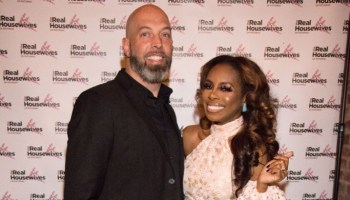The personal, poignant story about domestic violence that singer Kelis shared in an interview published Thursday could inspire countless other Black women inside and outside of hip-hop to stop living in danger.
The “Bossy” songstress, who had been an innovator of a fearless-kind of R&B fueled by girl power lyrics, said she spent years in fear behind closed doors because her marriage to rapper Nas from 2005-2010 was tainted by turbulence and terror.
“There was a lot of mental and physical abuse,” Kelis, 38, told Hollywood Unlocked. “We had really intense highs and really intense lows. It was never normal. An intense high would be when money was rolling in. But I was 22 when I met him. We were drinking a lot, getting high a lot. So when that comes down, it was bad.”
She was physically hit by the rapper, she said. It wasn’t until she learned of Rihanna‘s assault in 2009 — an event that woke up a lot of people about toxic masculinity in the music industry — that she walked away from her marriage. The then-soon to be mother knew that she had to protect her child and deserved a better life.
“I was pregnant and it was a mess and I felt like I wasn’t going to bring a child into this,” the remarried mom to a second son said.
Nearly a decade after their rocky marriage and divorce, Kelis and Nas have been tied up in custody battles over their 8-year-old son, Knight. Her story provides a cautionary tale for many young Black women, who are disproportionally affected by domestic violence. African-American women are subjected to intimate partner violence at a rate 35 percent higher than that of White women, with the rate about 2.5 times the rate of women of other races, according to a 2017 Women Of Color Network report.
Women can take precautionary measures to stay out of abusive relationships, paying attention to any warning signs of aggressive behavior in potential partners.
As for women in abusive situations, fears of alienation and shame, as well as a guarded reluctance to discuss violence and more factors, can influence why they stay with their partners. A distrust in law enforcement also plays a role, as many women see the acquittals of cops who fatally shoot people of color and face no real punishment.
What can women do to get out before it’s too late? How can they become survivors?
Here is a list of a few resources for help:
The National Domestic Violence Hotline
The National Dating Abuse Hotline
National Center For Victims Of Crime
National Suicide Prevention Lifeline
The National Health Resource Center On Domestic Violence
SEE ALSO:
Another Black Man Was Thrown Out Of A Restaurant For Just Sitting Down
Guilty On All Charges: Bill Cosby’s Prison Sentence Could End Up Being A Life Sentence
Bigger Than Hip Hop: How Kelis’ Truth About Domestic Violence Can Help Black Women was originally published on newsone.com















